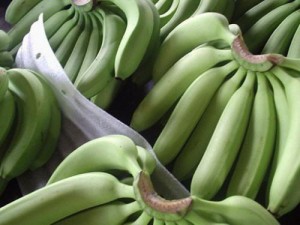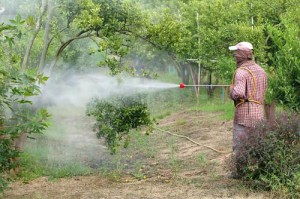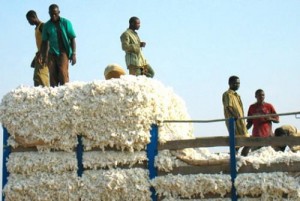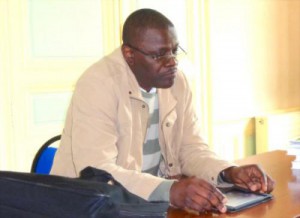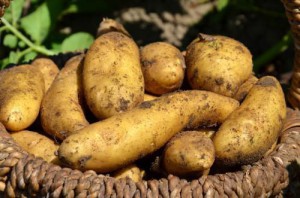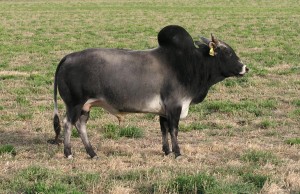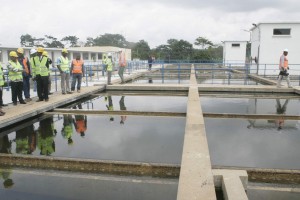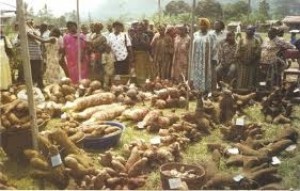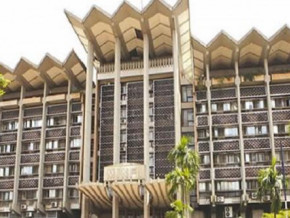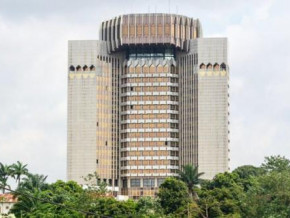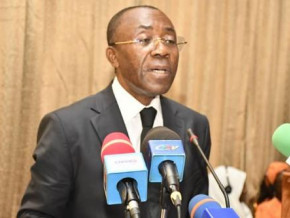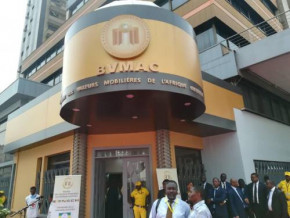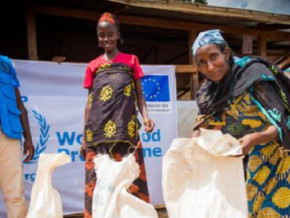
In 2017, PHP, leader in the Cameroonian banana market, is fearing “a disaster if prices do not increase”
Armel François, Managing Director of Société des plantations du Haut Penja, subsidiary of Compagnie fruitière de Marseille, which dominates in the production of banana in Cameroon, is visibly very concerned about the performance of PHP in 2017.
“(…) We have no option but to note that the banana market in Europe is largely below the figures used when the 2017 budget was being drafted. In other words, prices are low!”, announces the MD of PHP in the latest edition of “Au Coeur de la PHP”, the quarterly bulletin of this agro-industrial unit. In this situation, the MD points out, “PHP’s margins are becoming very low and the year could end up in disaster, if prices do not increase and more importantly if we do not do anything”.
Indeed, we learned, the European market, main destination for Cameroonian bananas, is currently over-supplied. Particularly due to the abundance of Latin-American dollar bananas, whose producing countries, this year, are not facing “any weather (el Niño, la Niña, cyclones and other tropical storms), tectonic (earthquakes), volcanic, social or political phenomenon (…), which had not happened for many years”, explains Armel François.
Therefore, to balance the company’s accounts against this international situation regarding banana prices, the MD of PHP listed some austerity measures which are necessary to implement. “The entire personnel of PHP and each of us can and must contribute to the effort made by the company to adapt to these market conditions. We will surely have to forego some benefits without reconsidering the essential for the telephone, fuel allowances, car mileage, but also convenience overtime and other small benefits taken from the company and where senior management showed a kindness which can no longer be the case”, writes Armel François in the editorial of PHP’s magazine.
As a reminder, according to statistics from the Association bananière du Cameroun (Assobacam – Cameroon’s Banana Association), PHP exported 124,875 tons of banana in 2016, representing half the global exports of Cameroonian producers (249,610 tons). Beside banana, this food company also produces Penja white pepper (approximately 40 tons per year), and just moved into cocoa, with the creation of farms covering 150 hectares and the construction of a processing unit producing chocolate locally under the brand “Atelier des cinq volcans”.
Brice R. Mbodiam
Five new phytosanitary products approved in the CEMAC zone
The Inter-State Committee on Pesticides in Central Africa just accredited, during a session held on 9 May, five new pesticides, thereby authorising their use in the six CEMAC States which are Cameroon, Gabon, Congo, Equatorial Guinea, Chad and CAR.
The phytosanitary products thus approved are Agreb 80 wp (fungicide), Boxer 10 wp (insecticide), Glycol 41% sl (herbicide), Glycol 680 wdg (herbicide), Super Killer 680 wdg (herbicide), Super 50 ec (insecticide) and Super 12 ec (insecticide).
These products were approved out of a list of 12 biochemical products presented by several companies. These accreditations come at a time when CEMAC States are denouncing the movement on their territories of many products harmful to agricultural activities.
BRM
Cameroon: Sodecoton in need of Fcfa 40 billion in investment to run at full capacity
Due to the obsolescence of its equipment, the Société de Développement du Coton (Sodecoton – Cotton Development Company), agroindustry giant in Northern Cameroon, had to lower the production capacity of its nine cotton ginning units to 200,000 tons, against an installed capacity of 350,000 tons, Mohamadou Bayero, MD of Sodecoton, revealed recently. This was during a Forum on the cotton sector organised on 10 May 2017 in Yaoundé, as part of the activities celebrating the 60 years of the European Union in Cameroon.
To revert this downward trend in its activities, Mohamadou Bayero revealed, Sodecoton needs investments estimated at FCfa 40 billion, including FCfa 11 billion to be released in emergency by the shareholders of this company, with the most important being the State of Cameroon.
The funding, we learned, will not only mainly help with the upgrade of Sodecoton’s industrial equipment, but also its mobile equipment which has become old and insufficient.
Despite these difficulties, the Northern Cameroon agroindustry giant is planning for a cotton production of 248,150 tons of cotton grains during the current 2016-2017 season, against 258,000 tons produced during the previous season.
BRM
Cameroon is about to import 31,000 tons of palm oil
The Association of Oleaginous Refiners of Cameroon (ASROC), through its General Secretary, Jacquis Kemleu Tchabgou,, announced during a press conference in Yaoundé that the country is about to import a total of 31,000 tons of palm oil in the coming days.
“The use of the current import authorisation for 96,000 tons of palm oil and by-products, approved on 09 December 2016 by the Minister of Finance, is effective through the arrival of about 21,000 tons of crude palm oil and the shipment in a few days of another 10,000 tons”, declared Mr. Kemleu Tchabgou,
According to him, the authorised volume for import will enable to build up security stock by ensuring the availability of refined vegetable oils and household soap. This should help avoid the inflation which could have appeared due to the deficit im the crude palm oil offer and consequently in refined vegetable oils and household soap.
We must say that this palm oil import approval is the result of the structural deficit of 130,000 tons and unfavourable climate conditions in 2016 which suggested that the production would continue to drop by 20% in 2017.
As a reminder, ASROC gathers the companies SCR Maya et Cie, Azur SA, Sodecoton SA, SCS/Rafca, Spfs, Cco SA, and Saagry who produce 95% of refined vegetable palm, cotton and soja oils, and 90% of household soaps available in Cameroon's commercial world.
Sylvain Andzongo
BID injects FCfa 46 billion into agricultural development and animal breeding in North-West and West Cameroon
The Cameroonian Ministry of Agriculture has officially launched phase 2 of Grassfields Integrated Participative Development projects in the region of the North-West, for an amount of FCfa 29.4 billion; and rural development of Mount Mbappit in Noun, West region, endowed with an amount of FCfa 16.6 billion.
This overall envelope of nearly FCfa 46 billion, which represents more than 90% of the financing necessary for the implementation of phase 2 of these two projects, we learned, has been provided by the Islamic Development Bank (Banque Islamique de Développement - BID). Through multiform support to producers, these two projects aim to substantially increase production of potatoes, corn, palm oil, rice and cassava in the North-West and West provinces of Cameroon, in order to improve farmer revenues.
BRM
16. 9 Million For 37 Adamawa Youth
Some 37 youth in the Adamawa region have been given 16, 900, 000 CFA francs to boost their entrepreneurship. Their projects have been selected from among 1,235 others to benefit from Urban and Rural Youth Project, Pajer-U, financing for 2013. The youth came from Vina, Djérem, Mayo Banyo, Faro and Déo and from Mbéré Divisions.
The interest-free loans ranged from 250,000 to 1,000,000 CFA francs and will go into agriculture, hairdressing, cattle rearing and others.
The national coordinator of Pajer-U, Pierre Matongo, is quoted as saying that all is being done to right the wrongs of the first phase wherein reimbursing posed a serious problem.
Also Read
23-09-2013 - 23 billion Youth Entrepreneurship Project Underway
86 Billion FDA Funds for Cameroon in 2012
–The French Development Agency (FDA) pumped in some 86.2 billion CFA Francs to finance Cameroon’s economy in 2012, its 2012 report indicates.
According to the report, the agency financed the global economy in 2012 to the tune of 4, 591 billion CFA francs and the 86.2 billion CFA francs new financing for Cameroon is in five sectors of the economy.
The report indicates that FDA’s support to financing Cameroon’s economy since 2006 is in the neighbourhood of 942 billion CFA francs in the domains of agriculture and rural development, infrastructure, development of productive sectors, social and environment sectors.
Binguela Agric School Welcomes Brazilian Experts
The Binguela Practicing Farming School (EPAB) in Mefou and Akono Division of the Centre Region is holding working sessions with agricultural experts from Brazil.
According to a communiqué, the visiting experts will build the capacities of agricultural producers on modern farming techniques needed to ensure food self-sufficiency in the country.
Brazil is coming in to share its experiences with Cameroon for the mutual benefit of the two countries.
Cameroon Evaluates IFAD’s Sponsored Projects
– Agricultural projects jointly sponsored by the International Fund for Agricultural Development (IFAD) and the government of Cameroon have come under scrutiny in Yaounde.
A sub-regional workshop grouping financial and administrative staff of the project began holding in Yaounde on Tuesday September 17, 2013 under the chairmanship of Agriculture and Rural Development Minister, Essimi Menye. Cameroon Tribune reports say the workshop sought to seek ways of righting wrongs that might jeopardise the proper execution of the projects.
It emerged from the Yaounde workshop that since 1981, IFAD has financed nine development projects and programmes in Cameroon to the tune of 301.1 million dollars (about 200 billion CFA francs). Ongoing projects include the root and tubers programme which is drawing to an end, support project for rural microfinance which began in 2010 and runs for five years as well as support programme for agricultural sectors which took off in 2012, among others.
Also Read
23-05-2013 - Cameroon develops 19-35 tons yields capacity per hectare cassava seedlings
Mags frontpage
- Most read 7 days
- shared 1 month
- read 1 month


